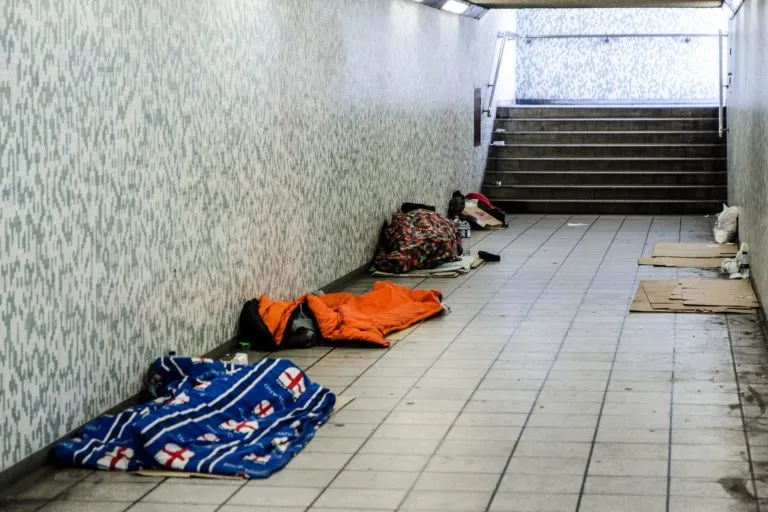High Court rules councils can lawfully accommodate street homeless people with ‘No Recourse to Public Funds’ – will the government now provide proper guidance?
Published: by Guest blog

By Robert Brown, solicitor at Shelter Legal
When the government asked councils to bring ‘Everyone In’ off the streets and out of the pandemic last year, local authority staff across the country pulled out all the stops to accommodate thousands over the course of a single weekend. No mean feat.
But we know that not everybody got the help they needed.
Street homeless people with certain types of immigration status were, and still are, being left out in the cold because they are not eligible for homelessness assistance. Amongst this group of people are those who have no recourse to public funds (NRPF). NRPF is a condition related to someone’s immigration status which means they cannot access public funds, including housing benefit, homelessness assistance or social housing. NRPF has effectively barred some people who’ve been forced to sleep rough from accessing vital housing support – even during an unprecedented and deadly health crisis.
This is exactly what happened to Timon Ncube in September last year.
The case: Ncube v Brighton and Hove City Council
Mr Ncube is a former asylum seeker whose claim for asylum had been refused, and therefore he had no recourse to public funds. In September last year, he had been sleeping rough and he contacted Brighton and Hove City Council for urgent homelessness support.
The council said he was ineligible for support under the Housing Act 1996 because he had NRPF and they rejected his plea for help.
In October, solicitors sent a letter before action to the council on Mr Ncube’s behalf, asking them to find him accommodation. Their letter explained he was destitute, vulnerable and homeless during the pandemic. But the council said they were unable to help. They repeated that they wouldn’t find accommodation for him, and ‘Section 4’ accommodation for former asylum seekers was what Mr Ncube should seek. At this point, Mr Ncube had been told he was ineligible for this type of accommodation and so had not yet made a section 4 application. Mr Ncube was therefore still homeless with nowhere to turn.
So, Mr Ncube’s solicitors took Brighton and Hove City Council to court.
The case was heard at the High Court on 15 December 2020. The solicitors championing Mr Ncube’s case, and Shelter as an intervener, asked the court to consider whether the council had unlawfully refused to find accommodation for Mr Ncube on the basis they had failed to consider the whole range of legal powers available to them.
Shelter and Mr Ncube’s solicitors argued the council could have used other powers as an alternative way of finding accommodation for Mr Ncube, such as:
- section 138 of the Local Government Act 1972 – powers councils can use during an emergency or disaster. In the context of an emergency involving danger to life, councils can take action to provide accommodation or secure assistance;
- Section 2B of the NHS Act 2006 – general power councils have which allows them to improve the public health of people who live in their area.
The Judgment
The court has ruled that, while the public health emergency persists, local councils can lawfully provide accommodation to those sleeping rough who are otherwise ineligible for support. Councils can use their powers under section 138 of the Local Government Act 1972 and section 2B of the NHS Act 2006 to provide safe emergency accommodation as the current pandemic constitutes an emergency and public health issue.
Ncube v Brighton and Hove City Council is an important case that we at Shelter felt compelled to intervene in. We have seen first-hand through our own services throughout this pandemic the devastating impact on those left without help. People have been left in life-threatening situations with nowhere to turn. In a crisis of this magnitude access to emergency accommodation should not be a lottery.
This judgment will have major implications for local authority homelessness services. Not everyone who is ineligible for homelessness assistance have been accommodated during the pandemic because the government’s guidance on ‘Everyone In’ wasn’t clear about who was entitled to help. That ambiguity has now gone.
Now the court has made clear what powers there are to help people who are otherwise ineligible for support – council practice needs to change. The government must consider this judgment carefully, and issue explicit guidance to councils confirming these powers can and should be used to bring everyone in.